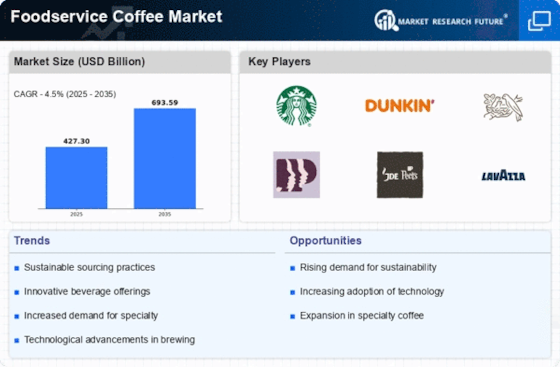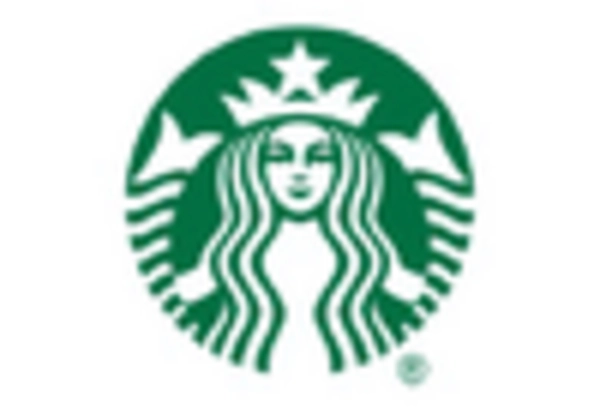Market Trends
Key Emerging Trends in the Foodservice Coffee Market
The foodservice coffee market is experiencing dynamic shifts driven by changing consumer preferences, industry innovations, and the evolving landscape of the food and beverage sector. Coffee, a ubiquitous beverage enjoyed globally, has become an integral part of the foodservice industry, influencing market dynamics in various ways. Key factors shaping the market include the rise of specialty coffee culture, the impact of evolving consumer lifestyles, the importance of sustainable sourcing, and the transformative role of technology in the coffee service experience.
One of the primary drivers of the foodservice coffee market is the growing prominence of specialty coffee culture. Consumers are increasingly seeking unique and high-quality coffee experiences, moving beyond traditional drip coffee to explore a variety of specialty brews such as espresso-based drinks, cold brews, and single-origin coffees. This shift has led to a surge in specialty coffee shops and artisanal cafes, creating new opportunities for market players to offer premium coffee products that cater to the discerning tastes of consumers.
Evolving consumer lifestyles are playing a significant role in shaping the dynamics of the foodservice coffee market. With an increasing focus on convenience and on-the-go consumption, quick-service restaurants (QSRs) and cafes have adapted their offerings to meet the demand for portable and customizable coffee options. The introduction of mobile ordering, drive-thru services, and grab-and-go solutions has become integral to the coffee service experience, reflecting the need for efficiency and flexibility in catering to diverse consumer preferences.
Sustainable sourcing has become a key consideration in the foodservice coffee market dynamics. Consumers are placing a greater emphasis on ethically produced and environmentally friendly coffee beans. This has led to a rise in demand for certified organic and fair-trade coffees, with consumers actively seeking transparency in the supply chain. Coffee establishments that prioritize sustainable sourcing practices not only appeal to socially conscious consumers but also contribute to the overall positive image and reputation of the brand.
The transformative role of technology is reshaping the coffee service experience within the foodservice industry. Digitalization has introduced innovations such as mobile payment options, loyalty programs, and smart ordering systems that enhance customer convenience and engagement. Additionally, advancements in coffee brewing equipment, such as automated espresso machines and precision coffee makers, contribute to consistent and high-quality coffee production. The integration of technology not only streamlines operations for foodservice providers but also enhances the overall customer experience.
Global economic factors, including fluctuations in coffee bean prices and currency exchange rates, impact the dynamics of the foodservice coffee market. As a globally traded commodity, coffee prices can be subject to volatility due to factors such as weather conditions, crop yields, and geopolitical events in coffee-producing regions. Foodservice establishments need to navigate these economic variables by implementing strategic pricing, optimizing supply chain management, and adapting to changes in the cost of raw materials.
Innovation in coffee flavors, preparations, and presentations is a key factor influencing market dynamics. As consumers seek novel and unique coffee experiences, foodservice providers are experimenting with diverse flavor profiles, creative brewing methods, and visually appealing presentations. Limited-time offerings, seasonal promotions, and collaborations with local roasters or brands contribute to the dynamic and ever-evolving landscape of the foodservice coffee market.



















Leave a Comment